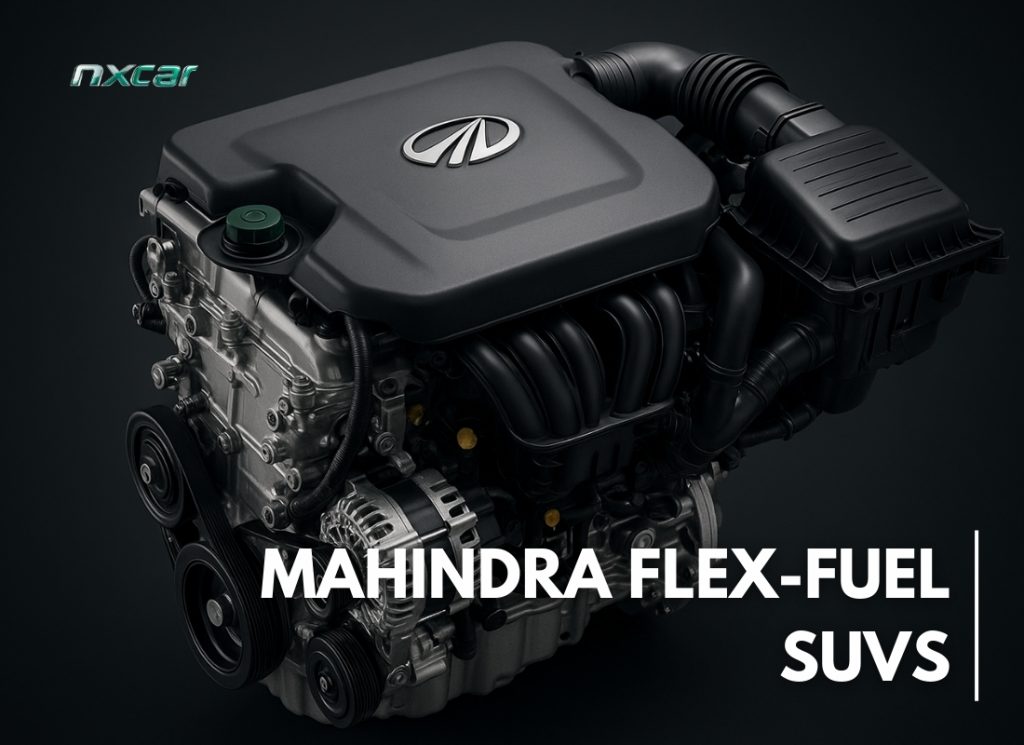Introduction to Mahindra’s Flex-Fuel Revolution
As the automotive industry shifts toward sustainable solutions, Mahindra is making bold strides with its upcoming flex-fuel engines designed for future SUVs. Built on the innovative NU-IQ modular platform, these engines align with India’s ambitious goal of adopting E30 fuel (30% ethanol-blended petrol) by 2030. This move not only supports eco-friendly driving but also positions Mahindra as a frontrunner in India’s green automotive revolution. In this article, we explore Mahindra’s flex-fuel technology, its technical advancements, and how it stacks up against competitors in the race for sustainable mobility.
What Are Flex-Fuel Engines?
Flex-fuel engines are designed to run on varying blends of petrol and ethanol, offering flexibility and reduced carbon emissions. Mahindra’s flex-fuel engines are engineered to handle E30 blends and potentially higher ethanol concentrations, making them adaptable to India’s evolving fuel landscape. Ethanol, a renewable biofuel derived from sugarcane and other crops, burns cleaner than traditional petrol, reducing greenhouse gas emissions and dependence on fossil fuels.
Why Flex-Fuel Matters for India
India’s push for ethanol-blended fuels is part of its commitment to reducing carbon emissions and achieving energy independence. By targeting E30 fuel adoption by 2030, the government is encouraging automakers to innovate. Mahindra’s investment in flex-fuel technology supports this vision, offering consumers eco-conscious vehicles without compromising performance.
Mahindra’s Flex-Fuel Engine Technology
To accommodate higher ethanol blends like E30, Mahindra is reengineering its engines with advanced components, including:
- Ethanol Sensors: These sensors detect the ethanol-petrol ratio in real-time, allowing the engine to adjust combustion for optimal performance.
- Heated Fuel Rails and Injectors: Ethanol requires higher temperatures for efficient cold starts, and Mahindra’s upgraded fuel systems ensure smooth operation even in colder climates.
- NU-IQ Platform Integration: The new modular architecture supports multiple powertrain options, making it a versatile base for Mahindra’s flex-fuel SUVs.
These advancements ensure Mahindra’s SUVs deliver reliable performance while meeting stricter environmental standards.
Mahindra vs. Competitors: The Flex-Fuel Race
Mahindra isn’t alone in embracing flex-fuel technology. At Auto Expo 2025, several automakers showcased their ethanol-ready vehicles:
- Hyundai: Displayed a Creta 1.0 Flex Fuel, optimized for higher ethanol blends.
- Tata Motors: Showcased an E85-ready Punch, capable of running on up to 85% ethanol.
- Maruti Suzuki: Presented a Wagon R Flex Fuel prototype, highlighting its commitment to sustainable fuels.
- Toyota: Introduced the Innova Hycross with a petrol-hybrid powertrain compatible with E20 and higher ethanol blends.
While competitors are making strides, Mahindra’s focus on integrating flex-fuel engines with its NU-IQ platform gives it an edge in offering versatile, future-ready SUVs tailored for India’s roads and fuel policies.
Benefits of Mahindra’s Flex-Fuel SUVs
Mahindra’s flex-fuel SUVs promise several advantages for consumers and the environment:
- Eco-Friendly Performance: Higher ethanol blends reduce tailpipe emissions, contributing to cleaner air.
- Fuel Flexibility: Drivers can switch between petrol and ethanol blends without needing separate vehicles.
- Cost Savings: Ethanol is often cheaper than petrol, potentially lowering fuel costs for consumers.
- Support for Local Agriculture: Increased ethanol demand boosts India’s agricultural sector, as ethanol is produced from crops like sugarcane.
Challenges and Future Outlook
While flex-fuel technology is promising, challenges remain. Reengineering engines for higher ethanol blends requires significant investment, and the infrastructure for E30 fuel distribution is still developing. However, Mahindra’s proactive approach, combined with government support, positions it well to overcome these hurdles.
Looking ahead, Mahindra’s flex-fuel SUVs could redefine sustainable driving in India. By leveraging the NU-IQ platform’s flexibility and advancing engine technology, Mahindra is poised to deliver vehicles that balance performance, affordability, and environmental responsibility.
Conclusion
Mahindra’s development of flex-fuel engines for its upcoming SUVs marks a significant step toward a greener automotive future. With the NU-IQ platform and advanced engine technologies, Mahindra is aligning with India’s E30 fuel goals while offering consumers versatile, eco-friendly vehicles. As the industry evolves, Mahindra’s commitment to sustainability positions it as a leader in the flex-fuel revolution. Stay tuned for more updates on Mahindra’s innovative SUVs and their role in shaping India’s automotive landscape.
Keywords: Mahindra flex-fuel SUVs, E30 fuel, flex-fuel engines, NU-IQ platform, eco-friendly SUVs, ethanol-blended petrol, sustainable driving, India E30 fuel 2030, Auto Expo 2025, green automotive technology.




